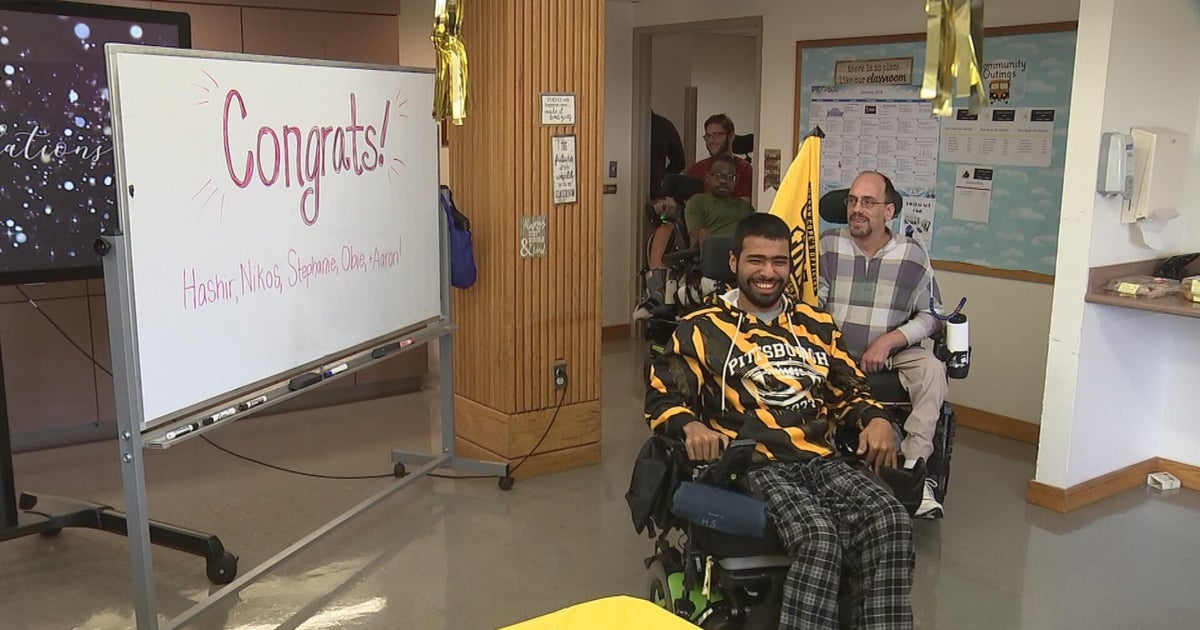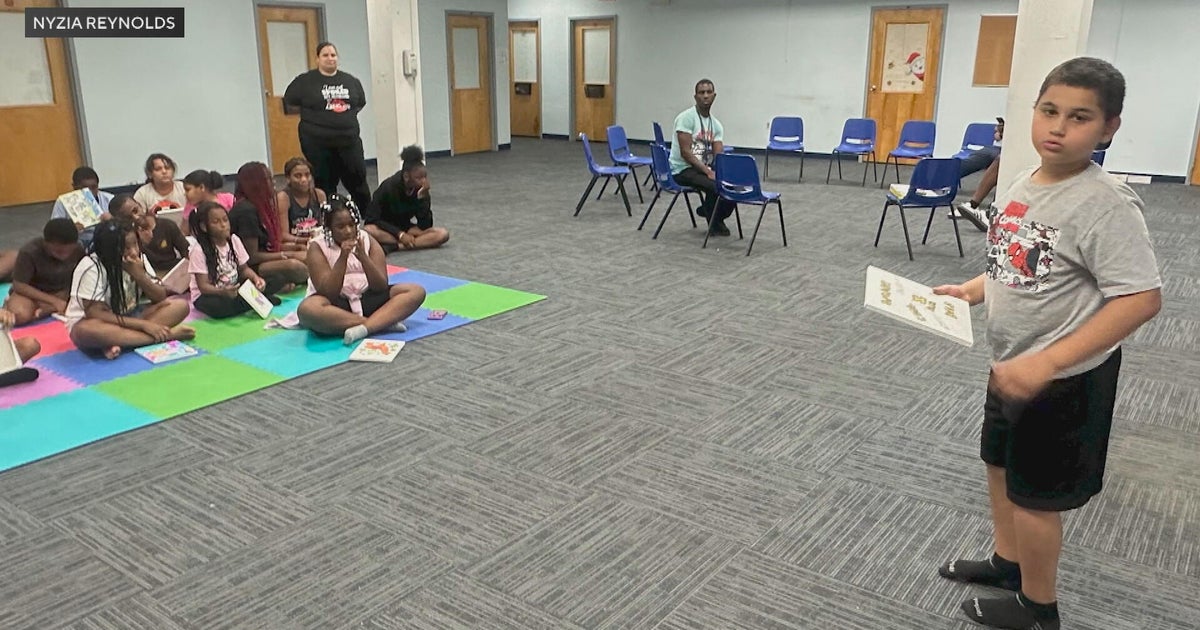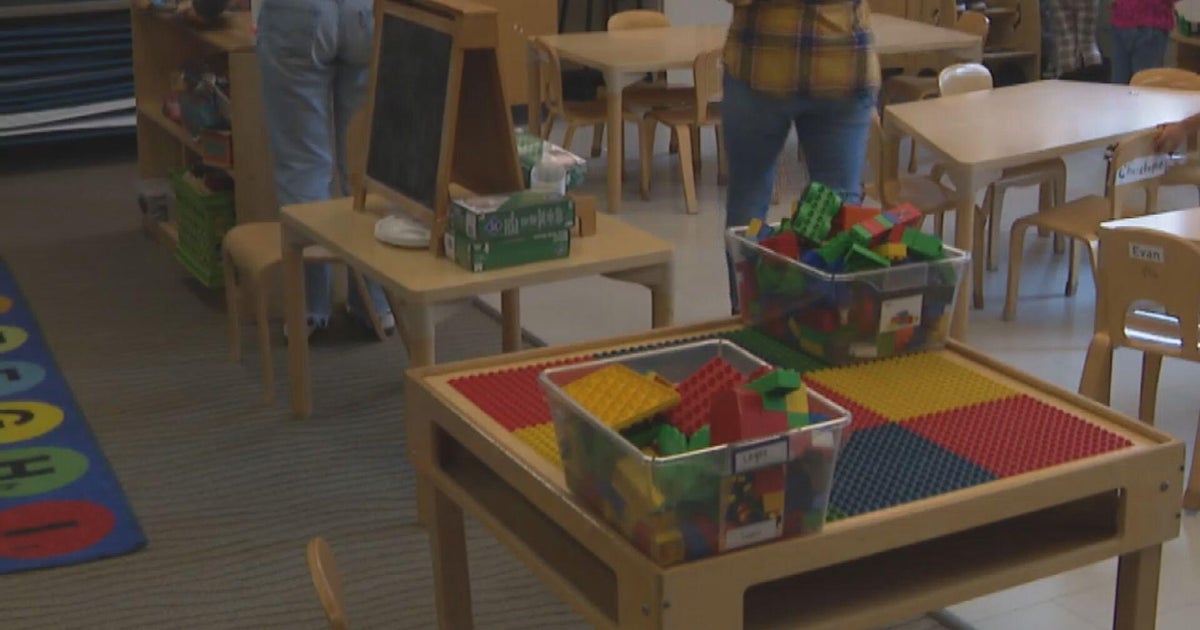North Texas Businesses Struggling To Survive Pandemic Face Lawsuits By Out-Of-State Lawyer
DALLAS (CBSDFW.COM) - The coronavirus has ravaged the restaurant industry. Now many small businesses struggling to survive the pandemic are also fighting an unexpected legal battle from a Florida attorney.
Douglas Schapiro says he's on a crusade for people with disabilities. He lives in the Boca Raton area but has spent years suing Texas businesses for violating the Americans with Disabilities Act.
"I love making our country more accessible for the disabled population," he told CBS 11 News.
Under Title III of the federal law, people with disabilities can sue a business if it presents a physical barrier. It could be a lack of handicap parking spaces, handrails or ramps. But the issues could also be much smaller, like chipped paint on a curb or a bathroom mirror hung an inch too high.
Business litigation attorney Henry Pfutzenreuter says almost any business could be subject to a Title III suit. "The law is written in such a way that it's really hard to be perfect. If somebody wants to sue your business for an ADA claim, they can probably find a violation if they look hard enough."
In many cases, the owners say they learn of ADA violations when they are sued. That's what happened to Abdul Haroun, the owner of Jimmy's Big Burgers in Plano. "We were completely unaware of any such thing." His business was already struggling with the pandemic when Schapiro filed suit in September. According to court documents part of the restaurant's counter and soda machine are too high off the ground, and the doors to the restrooms are too narrow. "Ours is about 30 inches," he told CBS 11. "They're requesting 32 inches." Haroun estimates all the changes will cost him around $7,000.
Schapiro also sued the Vickery Cafe in Fort Worth - also for the counters and bathrooms. "By the time this is all said and done we're probably in the $15-20 thousand dollar range," said owner Curtis James. Jeff Treadwell, the man who owns the entire strip center, was also sued for violations in the parking lot. "It was apparent the quicker I paid Doug Schapiro, the quicker it was going to get handled," said Treadwell. He says he warned other businesses, telling them to "watch out because [Schapiro is] on the loose in Fort Worth."
The I-Team analyzed federal court records and discovered that since 2018, more than 750 Title III lawsuits have been filed in Texas. More than half of those are Schapiro cases.
Attorneys, such as Schapiro, have appointed themselves the ADA enforcers because there is no one else doing it. City inspections do not look for violations. While Texas has its own accessibility law, it only applies to properties built or renovated after 1992. State officials told the I-Team " someone seeking enforcement of ADA violations would have to sue."
Activists who work with Schapiro say that's why they do it. Some days they visit multiple locations, snapping selfies along the way. One a single day in July, one activist stopped by four Plano properties in a few hours, resulting in four lawsuits filed by Schapiro.
Court records show most businesses agree to fix the violations and pay a settlement of around $4,500. That's Schapiro's legal fee. The activists get $300 to go back and re-inspect the businesses and check if the problems were fixed, but that wasn't always happening. Schapiro's activists weren't returning to some of the properties. A federal judge in Fort Worth noticed the trend and ordered Schapiro and his activists into court in February. Two activists told the judge they did not stumble upon the businesses to sue. They say Schapiro sent them there. Neither activist could fully explain why they weren't doing the re-inspections.
Schapiro told us he was surprised to learn of the re-inspection issue, calling himself a "stickler for the rules." He told the judge - and the I-Team - that he's implemented new rules to ensure the activists follow up and complete re-inspections.
Some disability rights activists say the goal should be the fix the violations, not file lawsuits. "Sometimes people are just not even aware," said Lucia Romano, with Disability Rights Texas. "And I think it's fair to give them notice and [give] them some time to cure the situation."
With the ADA turning 30 this year, Schapiro says businesses have had enough time. "They should know about this and they should take appropriate measures."
The I-Team asked Schapiro why he doesn't send warning or demand letters before suing. He said he used to but businesses "just rip them up and throw them away." However, since the pandemic began, Schapiro told us he has updated his practices, saying "in these trying times, we seek to balance the interests of the disabled community against the ability of property owners." He says he is now focusing on larger property owners and not their tenants, and he is sending demand letters first to smaller property owners.
Texas's accessibility law does require a warning letter; the federal law does not.
Statement from Douglas Schapiro:
"The pandemic has impacted the way in which our advocacy has proceeded. We are cognizant of the burdens the pandemic has placed on everyone. When Texas was on lockdown, the advocates were unable to revisit locations and conduct re-inspections. They have since gone back and provided re-inspection photographs detailing whether the Defendants in the cases have complied with their legal obligations, and continue to do so. Where the re-inspections show non-compliance, we have actively moved to compel compliance. Due to the fact that many of the agreements are confidential agreements, I cannot go into detail as to the specifics of most cases. However, the case of Cairns v. Rochelle Real Estate, LLC (19-2492), is one example of the advocate, Mr. Cairns returning to the location as a customer and to reinspect. We found the Defendants had not timely complied with the requirements of the Consent Decree and have actively enforced the agreement. They are currently in the process of modifying the property to be ADA compliant.
Also, I have personally changed how I evaluate a property and determine whether to file a lawsuit or not. Before the pandemic, I would file a lawsuit against the property owner and tenant who operated the business. After the Pandemic, I would only file a lawsuit against the property owner. Property owners typically have significant financial resources, more than a tenant and are able to handle the financial impact of the modifications. Since the property owner is equally responsible under the ADA for interior and exterior modifications, the interior barriers to access identified in our complaints can still be adequately addressed. Also, prior to filing a lawsuit, I examine the county property appraiser profile for each property. If the property has an assessed value of more than $1 million dollars, I will proceed with filing a lawsuit. If the property has a value less than $1 million, we don't initially file a lawsuit, we send a pre-suit demand and try to settle the case out of court. If the property is less than $500,000.00 we send a letter. Also, instead of six months to make the modifications, we now allow the modifications to be made in 18 months. The lock downs have caused delays in construction and the additional time will allow property owners to save money and for the economy to bounce back (as it is currently doing). Finally, as I have done in the past, I provide each Defendant with information and an application for a $5,000.00 tax credit and a $15,000.00 tax deduction (see attached) available from the IRS for spending money on accessibility modifications. This helps mitigate the costs of the modifications. Also, because we extended the deadline from 6 months to 18 months, it is possible for the property owner to apply the $5,000.00 tax deduction in 2020 and again another $5,000.00 tax deduction in 2021.
As you can see, even in these trying times, we seek to balance the interests of the disabled community against the ability of property owners to afford the modifications. Now, more than ever, the disabled population need public accommodations to be accessible in order to quickly and easily get the necessities and goods they need to live."
Statement from the Texas Department of Licensing and Regulation (TDLR):
"The ADA and the Texas Accessibility Standards are two separate things. TDLR does not enforce ADA regulations. Someone seeking enforcement of ADA violations would have to sue. We do enforce the Texas Accessibility Standards, and can only respond to complaints of violations of the TAS because those are ones we have authority to enforce, assuming the business was required to comply with the TAS. The TAS allows TDLR To be proactive by looking at plans and specs before a building is constructed or altered to make sure that it is being done properly."
MORE FROM CBSDFW








